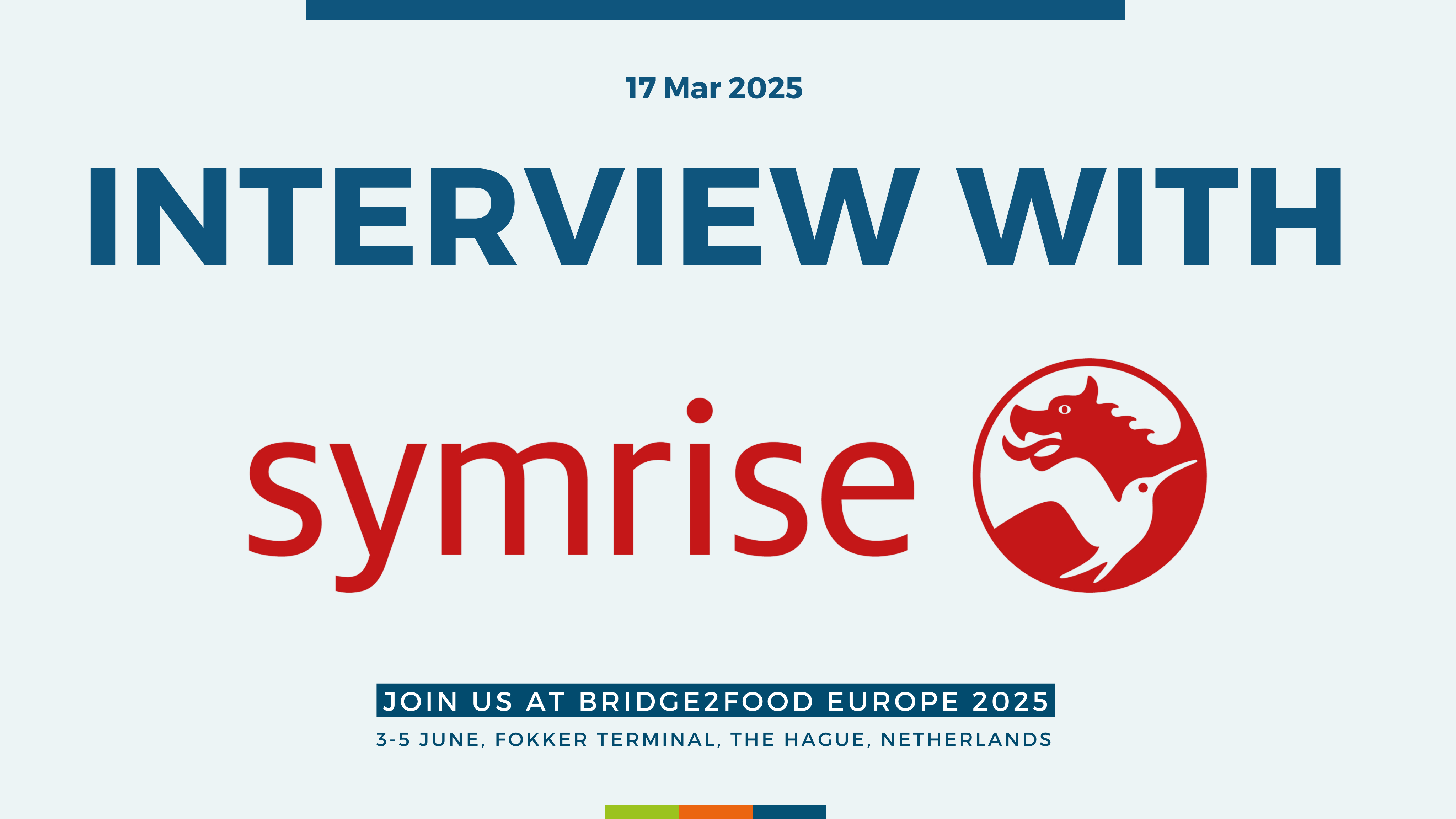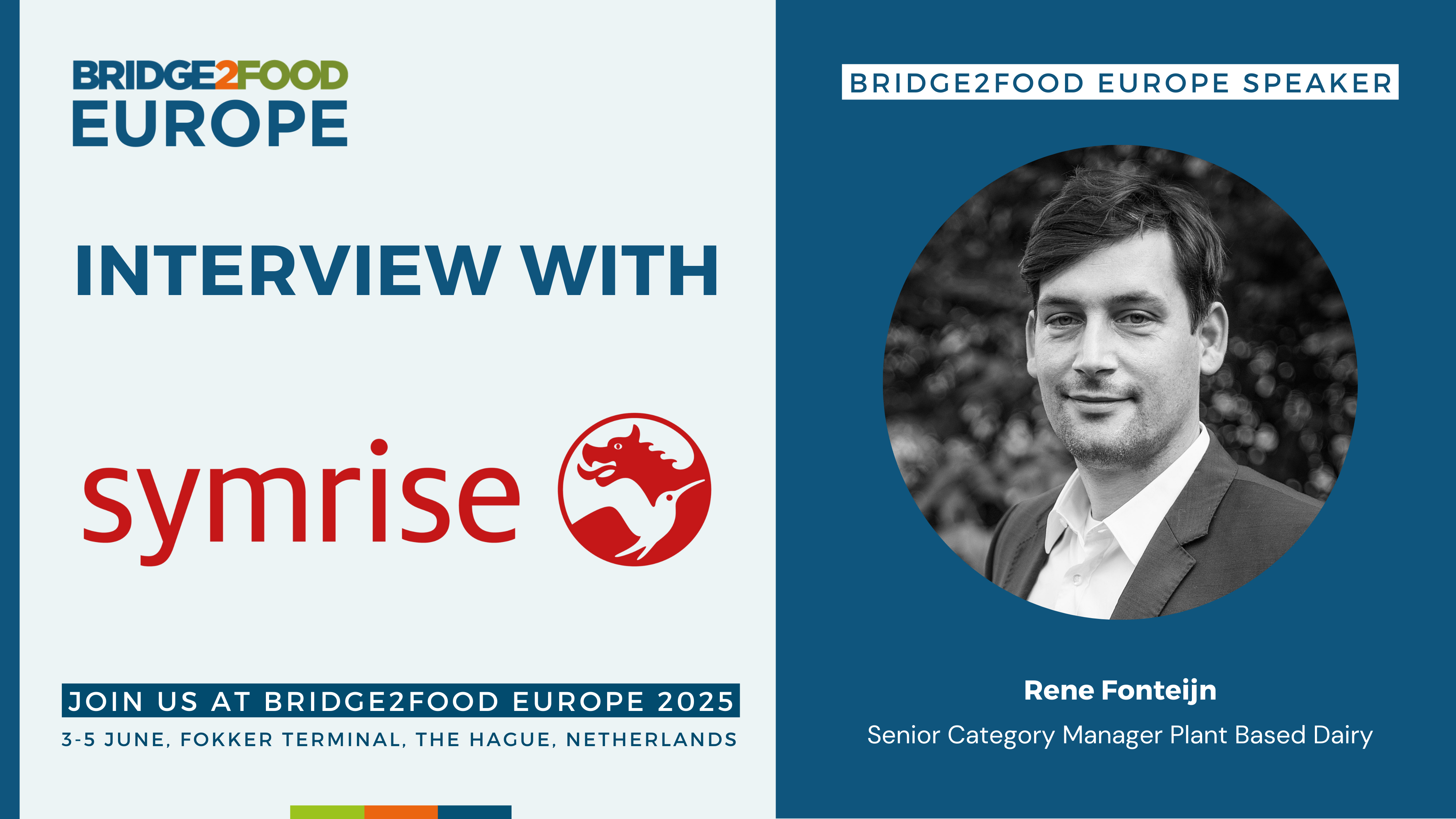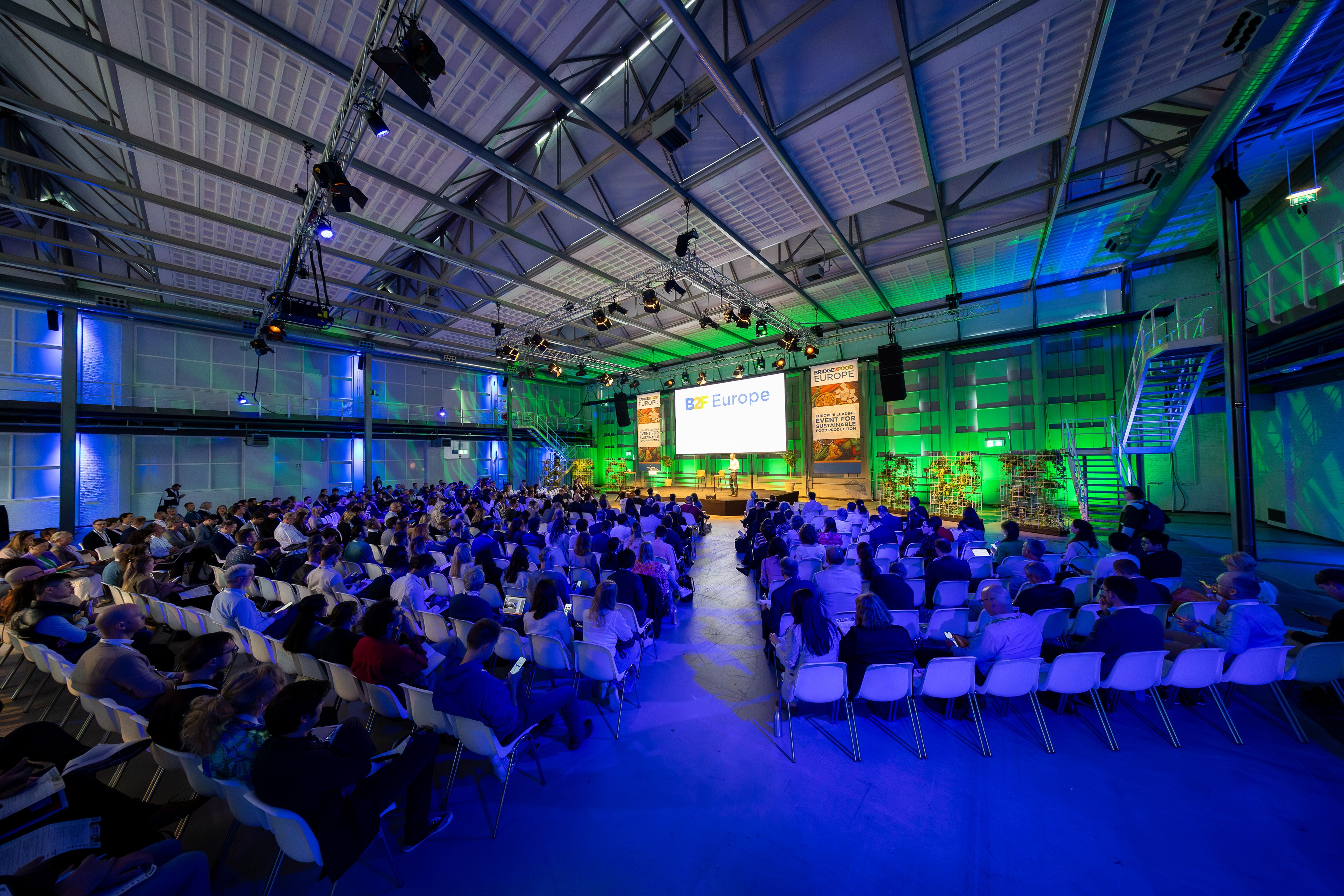

Symrise AG collaborates with brands across food, beverages, and even fragrances.
Why is Bridge2Food Europe 2025 an important event for Symrise AG, and what types of collaborations are you looking to explore?
Especially for the plant-based sector, Bridge2Food is an excellent platform to discuss innovation.
We’re focused not only on meeting and engaging with our customers but also on collaborating with other ingredient suppliers and research institutions.
Bridge2Food brings everyone together in one room, giving us the chance to discuss the challenges we all face. As we know, most plant-based products contain a range of ingredients, from stabilisers, proteins to flavours. It’s clear that no single entity can tackle these challenges alone. That’s why collaboration is key to uniting expertise from across the industry and the scientific community. Together, we’ll deliver the best products to answer consumer’s demands for tasty and nutritious food and beverages.
Symrise AG works extensively with natural raw materials, from vanilla to citrus and beyond.
How does your research in natural ingredients contribute to developing plant-based flavours that match or enhance traditional taste profiles?
Additionally, they can predict certain reactions within a formulation matrix, such as how specific proteins interact with molecules used in our flavour development. Through informed decision-making, we can support cost-effective formulations while ensuring excellent taste.
Your session, ‘Tech Meets Taste: The Future of Ingredient Innovation,’ highlights key formulation challenges in plant-based products.
Regarding ensuring stability and performance, what are some common issues brands face, and how does Symrise help address them?
At Symrise AG, our focus is primarily on the organoleptic aspect of the products. We must look at masking off-notes, balancing sweetness, bitterness or saltiness, adding dairy notes, improving mouthfeel, and making sure that all these parameters are maintained throughout the product’s shelf-life.
Additionally, we need to ensure that everything we add serves the right purpose and achieves its desired outcome. This is why we have dedicated portfolios for plant-based products, among others. Since plant-based proteins or other additives commonly used can react differently with certain flavour-compounds compared to traditional products, it’s crucial to choose the right ingredients. Otherwise, extremely high dosages may be required to achieve a desired taste profile or develop an entirely different (and unwanted) profile.
Our proprietary technologies enable us to analyse and predict certain outcomes. Therefore, we can provide guidance on which molecules to use, and equally important, which ones to avoid.

Beyond taste, consumers are also looking for nutritional and functional benefits in plant-based foods.
Are there specific ingredients within Symrise AG’s portfolio that serve both sensory and functional purposes?
Indeed, we do! As you already mentioned, we have a wide portfolio of natural products. Some of these products are part of our “health and nutrition portfolio”, where we support our customers with natural solutions to boost vitamin or mineral content, for example.
However, as many may know, the implementation of such ingredients depends heavily on the product’s formulation, matrix and production process to ensure stability.
This portfolio is backed by dedicated scientists who provide specialised support. Therefore, we strongly recommend in detailed discussions to thoroughly understand our customers’ products and processes to deliver solutions that meet their requirements.
Achieving great taste in plant-based products while maintaining clean labels is a major challenge.
What are some key considerations when developing natural flavour solutions, and how does Symrise AG approach this balance?
Natural flavours have dominated the European market for some time. I don’t see an issue with the flavours themselves. However, consumers are looking at the entire label, not just the flavours.
Symrise’s Symlife™ Taste Balancing platform provides a range of natural solutions that address some of the key challenges for alternative products. Our technology improves overall mouthfeel and balances sweetness, bitterness, and saltiness.
Long recipes are another challenge I see, as they add complexity to product label. As a flavour house, we can contribute to making simplifying recipes. Short ingredient declarations are often perceived as cleaner and less processed products.
There are many more major challenges, for sure. For example, can we use molecules from our library that support multiple functions within a matrix, such as providing both taste and emulsification with the same compounds? Can we use ingredients in our flavours that naturally contain nutrients and other health benefits, eliminating the need to add them separately? These are just a few examples of the challenges we aim to address in our innovation centres.
Symrise AG has been a key player in shaping the future of food and beverage innovation.
What opportunities do you see in engaging with the broader food industry at the event?
An important opportunity for me is to engage with the broader industry on how we can ensure we are prepared for the future. How can we improve the nutritional value of our plant-based products while achieving price parity with traditional products or even lowering their costs.
We, as ingredient suppliers, have focused extensively on the technical challenges we face with plant-based products. How can we avoid off-notes in plant-protein and make plant-based products as close as possible to their traditional counterparts?
But we may have overlooked the importance of creativity in our plant-based products. Do they truly taste the same as their traditional counterparts? Should we contribute debating with the traditional industry over whether something can be called milk or meat, or is it time to be creative and define our own identity? For me, this would make an excellent round-table discussion with partners, competitors, and customers to gather their opinions.
Finally, I’d love to work on what we could call the “next gen-products” - to be bolder, bringing more excitement, more fun, and of course, more flavour to our products.We appreciate your time, and we can’t wait to welcome Symrise AG to Bridge2Food Europe 2025! Any final remarks or comments you would like to add?
Thank you so much. We share that excitement and are already looking forward to the event, hoping to see many of our customers, partners and competitors. We anticipate great discussions and valuable insights.
I would like to add one more point for consideration: especially in the plant-based sector, we aim to meet sustainability goals; Mainly linked to CO2-reduction and regenerative agriculture.
How can we support sustainability and promote food security through plant-based or fermented foods? Can we leverage our innovations and technologies to provide affordable food for everyone, not only for us in Western Europe or North America?
Sustainability is a central element of Symrise’s corporate strategy. However, this goal cannot be achieved by any single entity. It requires a collective effort and broader industry collaboration, including partnerships with competitors and customers, to achieve success through an "open-source" approach.


